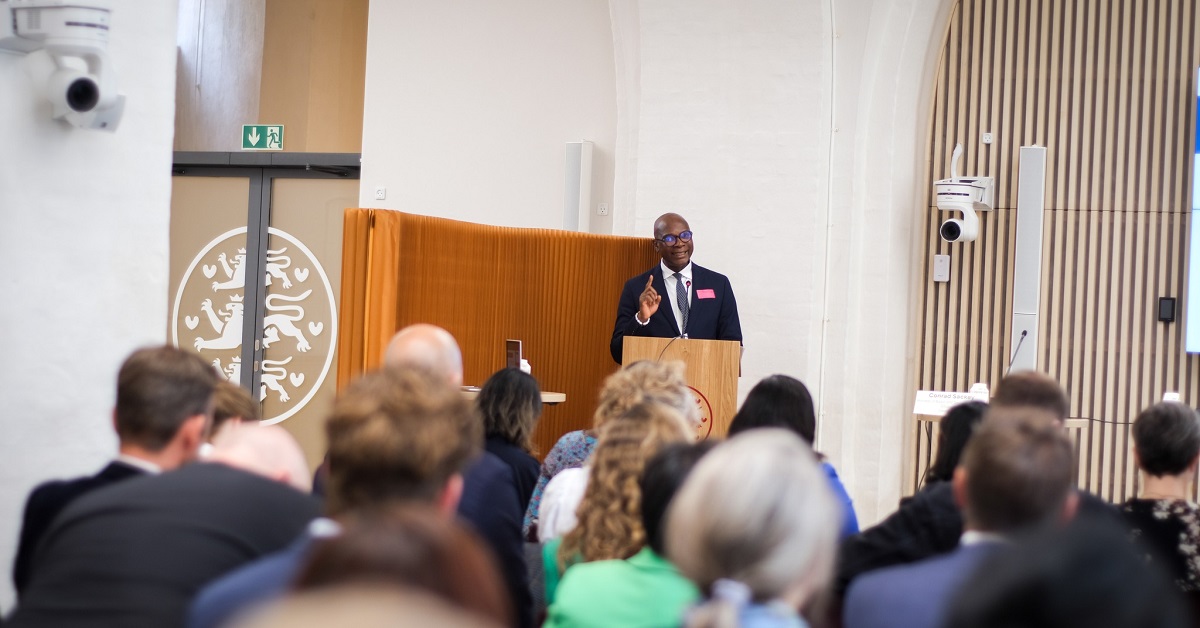Sierra Leone’s Minister of Basic and Senior Secondary Education (MBSSE), Conrad Sackey has Co-Hosted the Nordic-African Conference on quality education together with the Danish Ministry of Foreign Affairs, at the Danish Parliament in Copenhagen.
The discussion brought together high-level partners from Nordic African governments, NGOs and the private sector to take stock of joint efforts in addressing learning poverty in Africa.
Minister Sackey outlined the efforts Sierra Leone has made in the education sector over the years as part of the plan to boost education for all in the country.
“I set out the significant strides that Sierra Leone has made, not only in increasing school enrolment, but in ensuring learning outcomes in schools. These efforts are in line with the MBSSE’s guiding principle that all children have the right to free, quality education that will equip them with the foundational skills necessary to live a productive life.” he stated.
He maintained that the discussions underscored a clear and urgent purpose as the world is confronting a severe global learning crisis with dwindling financial resources to tackle it as well as maintaining that, they must invest in quality, foundational learning, strengthen the quality and quantity of teacher workforces, and pay special attention to the most vulnerable groups, including the girl child, disabled children, and children in conflict and conflicting areas to access better education.
He revealed that, after the productive discussions with their esteemed Nordic partners, three key issues arose to inform and guide their efforts ranging from, Partnerships at every level will be crucial: Increased investment is desperately needed to meet the financing gap for education systems, and this most come from a wide array of actors. Countries and public donors must raise their ambitions, but this alone will not suffice. Innovative financing and private sector investment will be crucial, Focus on efficacy of programs to make investments stretch further: Given the limited resources, we need to focus on what works, and importantly, what works at scale. Systems-strengthening interventions need to be country led. Donors need to listen to countries on where the real need is, and Decision makers need to be reminded that education is multidimensional.
Minister Sackey furthered that, as the cornerstone of sustainable development, it is good to invest in education as that means investing in all SDGs and a brighter future, adding that, they must build resilient education systems capable of withstanding climate change, conflict, and emergencies.











